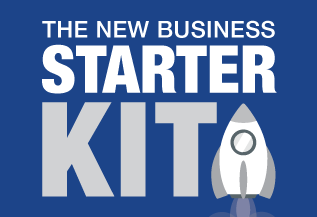7 questions to ask your accountant in 2023
Set your business up for a happy new year - Tough conditions, unpredictable supply chains, and rising inflation mean it’s time for expert support for your finances.
Ask the experts
Being in business can be an unpredictable path. After the impact of the COVID-19 pandemic, many SMEs are battling supply chain disruptions, natural disasters and rising inflation.
It’s times like these that an expert can help you navigate through the current business storm. Read on for seven questions you could ask your accountant to get your 2023 planning started.
1. How do I manage my cashflow?
Cashflow is notoriously tricky to manage for many SMEs. In busy times, do you pay yourself more or keep all the cash in the business? The answer depends on your specific circumstances, business structure, and how your industry is expected to fare over 6-12 months.
Ask your accountant for tailored advice specific to your business on balancing your salary with your business finances without risking your personal assets.
2. Should I be tax planning?
The first step to start with tax planning is understanding your current business structure. Ask your accountant if your structure meets your needs, about superannuation planning to minimise tax, and any recommendations to optimise tax.
Business structure backgroundSole trader
Trust
|
3. How can I set profit targets for 2023?
Ask your accountant how to get proactive with forecasting income for the year ahead. It's not enough to stay on course, forecast for the income you want to see and start planning on how your business can get there.
Your accountant may suggest reviewing your performance, costs and pricing to create a strategy to reach your 2023 financial goals.
4. What does inflation mean for my business?
Every business owner is concerned about the rising cost of living, interest rates and inflation. In the June 2022 quarter, 41% of businesses continue to face supply chain disruptions and almost half are experiencing increased operating expenses.
Talk to your accountant about the impacts on your costs and pricing. Can your business weather the increased costs? Is it time to review your interest rates?
5. Should I raise my prices?
Accountants can be a wealth of knowledge regarding your business pricing. Ask your accountant about reviewing your pricing system and existing rates against the market – and rely on the data to make informed decisions to increase revenue and profit.
A realistic look at pricing and supply chain pressures may result in a recommendation to end a product or service that isn't delivering the margin levels you need to achieve your overall financial goals.
6. Is my business debt being managed effectively?
Your accountant can look at this from two perspectives: your system for collecting customer debts, and your debt and finance responsibilities.
If your business is at risk of losses from bad debts, your accountant may advise on your current terms of trade to improve cashflow and profit.
If your business has outstanding debt and loans, ask about the best structure to minimise interest and if refinancing could provide any bottom-line benefits.
7. What tax or super changes will impact my business in 2023?
The impact of any tax or superannuation changes on your business is likely one of the most important questions to discuss with your accountant to ensure compliance.
Superannuation changes will likely impact your business, with the rate set to increase by 0.5% on 1 July until it peaks at 12% in 2025.
The next tax change on the horizon is the 2024 introduction of the Stage 3 tax cuts. These cuts lower the current 32.5% marginal tax rate to 30% on up to $200,000 and abolish the 37% rate altogether.
It's worth checking with your accountant if any pandemic-related funding, subsidies, costs or waivers your business received may be ending.
Asking questions to understand your business numbers
Being across your business numbers starts with knowing what you don’t know. Asking questions about your own finances is a positive step towards a healthy business in 2023 and beyond.
In a tricky economic climate, keep communicating with your accountant.














